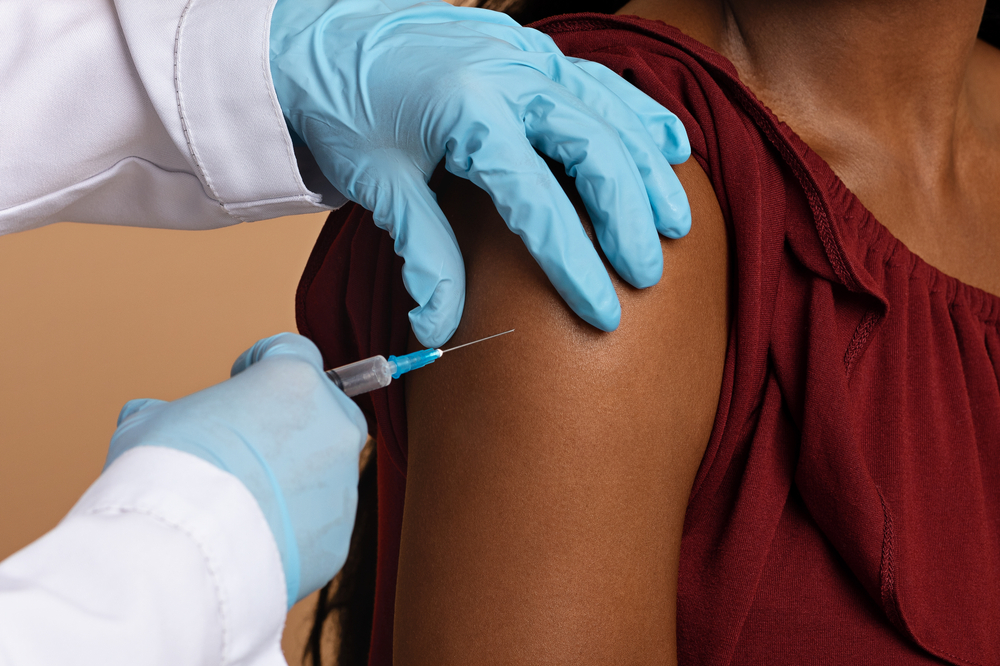
A study has found that while COVID-19 vaccination is effective in most cancer patients, the level of protection against COVID-19 infection, hospitalisation and death offered by the vaccine is less than in the general population and vaccine effectiveness wanes more quickly.
The study, published in Lancet Oncology by the UK Coronavirus Cancer Evaluation Project, was co-led by the Universities of Oxford, Birmingham and Southampton and the UK Health Security Agency (UKHSA). It was supported by the NIHR Oxford Biomedical Research Centre.
Dr Lennard Lee, of the University of Oxford’s Department of Oncology, who led the study, said: “We know that people with cancer have a higher risk of severe COVID-19 disease and that the immune response in cancer patients following COVID-19 vaccination is lower. However, no study has looked at vaccine effectiveness and its waning in cancer patients at a population level. We have undertaken the largest real-world health system evaluation of COVID-19 in cancer patients globally.”
The study analysed 377,194 individuals with active or recent cancer who had received two doses of the COVID-19 vaccine and undergone a SARS-CoV-2 PCR test in England. The numbers of breakthrough COVID-19 infections and COVID-19-associated hospitalisations and deathsin this cohort were compared to a control population without active or recent cancer.
The overall vaccine effectiveness against COVID-19 infection in the general population after two doses of the COVID-19 vaccine over the study period was 69.8%, whereas in the cancer cohort, overall vaccine effectiveness was slightly lower (65.5%). This indicates that COVID-19 vaccination is effective in most cancer patients.
However, vaccine effectiveness wanes more quickly in cancer patients. At three to six months following the second vaccine dose, vaccine effectiveness fell by nearly a third from 61.4% in the general population to 47.0% in the cancer cohort.
While the vaccine offers higher protection against COVID-19-associated hospitalisation (83.3%) and death (93.4%) than against breakthrough infections in the cancer cohort, this protection also waned by three to six months after the second vaccine dose.
Looking at the differences between people with different types of cancer, vaccine effectiveness is lowest and wanes most quickly in those with the blood cancers lymphoma and leukaemia.
The type of treatment that people with cancer receive also impacts both overall vaccine effectiveness and waning. In cancer patients that were treated in the last 12 months with chemotherapy or radiotherapy, vaccine effectiveness is lower and waned more by three to six months than in cancer patients that did not receive these treatments or were treated more than a year previously.
Professor Peter Johnson, Professor of Medical Oncology at the University of Southampton, commented: “This study shows that for some people with cancer, COVID-19 vaccination may give less effective and shorter-lasting protection. This highlights the importance of vaccination booster programmes and rapid access to COVID-19 treatments for people undergoing cancer treatments.”
Helen Rowntree, Director of Research, Services and Engagement at Blood Cancer UK, said: “For our community, COVID-19 very much has not gone away and many people remain in their homes due to the threat of COVID-19 highlighted in this important study. We know how important the vaccines are for people with blood cancer. This study importantly shows that immunity wanes faster in people with blood cancer, who are entitled to five vaccine doses, and we’d encourage everyone with blood cancer to make sure they are getting these doses.”